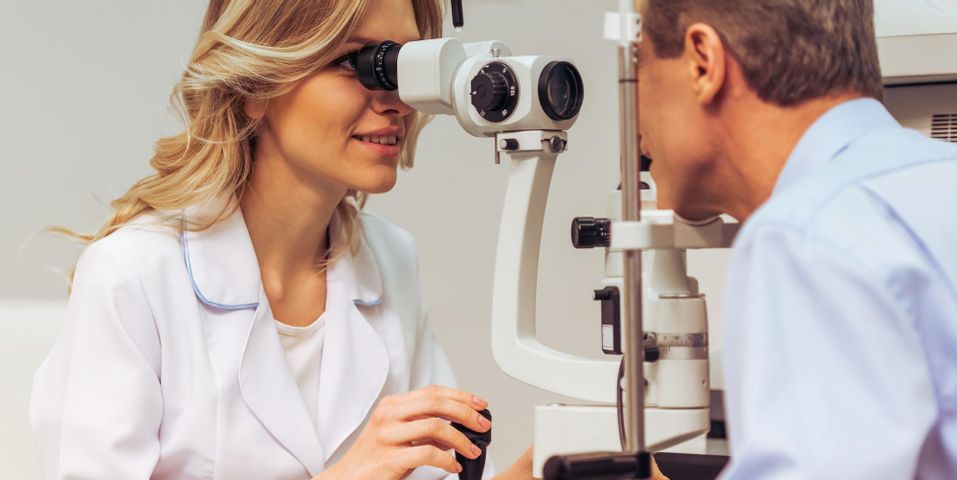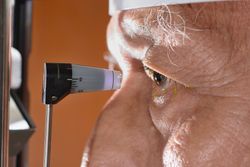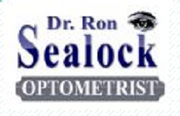
Glaucoma is an eye condition that damages that optic nerve. More than three million Americans have glaucoma, but in its most common form — called open-angle glaucoma — the condition presents few, if any, noticeable symptoms and a very gradual worsening of vision. If left untreated, glaucoma can lead to vision loss. To help you better understand your chances of developing this issue, four common risk factors are explained in more detail below.
How to Tell If You're at Risk for Glaucoma
1. Age & Ethnicity
Among the general population, glaucoma is most common in people over 60, especially in those of Mexican descent. But, African Americans face the biggest risk of developing the condition, and symptoms can start developing as young as age 40.
2. Eye Pressure
 At a typical eye exam, the optometrist will measure your eye pressure. Normal eye pressure is between 10 and 21 millimeters of mercury — mm Hg. In many patients, glaucoma is usually caused by pressure buildup in the eye, which in turn exerts strain and damage on the optic nerve, so consistently elevated eye pressure readings are a glaucoma red-flag. Anything over 21 mm Hg is considered elevated and should be monitored closely.
At a typical eye exam, the optometrist will measure your eye pressure. Normal eye pressure is between 10 and 21 millimeters of mercury — mm Hg. In many patients, glaucoma is usually caused by pressure buildup in the eye, which in turn exerts strain and damage on the optic nerve, so consistently elevated eye pressure readings are a glaucoma red-flag. Anything over 21 mm Hg is considered elevated and should be monitored closely.
3. Heredity
Research indicates that over 50 percent of all glaucoma cases are hereditary. There is a particularly strong link between siblings. If you have a sibling with glaucoma, your chances of developing it may be 10 times higher than people in the general population.
4. Health Issues & Medications
Certain health problems like diabetes and high blood pressure may contribute to glaucoma, as can certain types of medications, such as long-term use of corticosteroids. People with severe nearsightedness, or myopia, are more prone to open-angle glaucoma, while people with farsightedness — or hyperopia — are more susceptible to narrow-angle glaucoma. Narrow-angle glaucoma — marked by sudden, extreme eye pain and blurred vision — is the most serious type of the condition and is a medical emergency that requires prompt treatment.
Dr. Ron Sealock treats glaucoma patients throughout the Houston County, AL, region. Dr. Sealock and his team offer a full-service optometry center, providing everything from routine eye exams to glasses and contact lenses. If you fall into one of the categories discussed above, make it a priority to get a glaucoma screening; call (334) 793-9607 or visit Dr. Sealock's website to schedule an appointment.
About the Business
Have a question? Ask the experts!
Send your question

